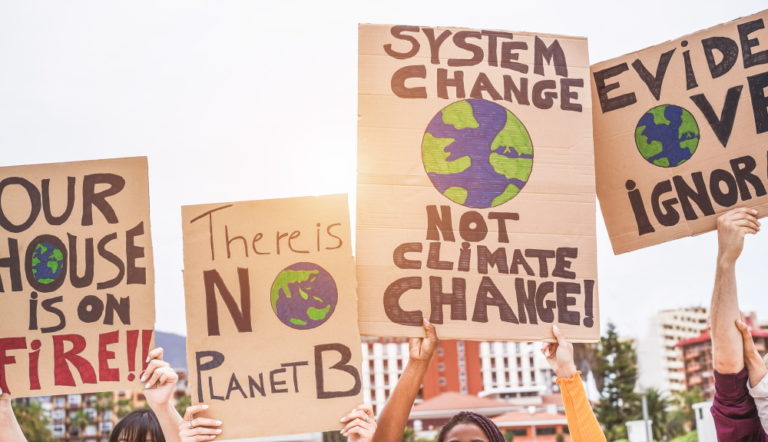If you spent any time at all online last week, you will already be aware of national treasure David Attenborough breaking the internet with his Instagram debut. In a video post, the 94-year-old nature expert made an impassioned plea to his followers (4.6 million and counting) to take climate change seriously: “I’m making this move and exploring this new way of communicating because, as we all know, the world is in trouble. Continents are on fire, gases are melting. Coral reefs are dying, fish are disappearing from our oceans – the list goes on and on… Saving our planet is now a communications challenge. We know what to do, we just need the will.”
It wasn’t exactly the cheery #ThrowbackThursday we’ve come to expect from Instagram – but it’s certainly the wake-up-call our social media feeds needed. Attenborough is, of course, entirely right. Although the news cycle of 2020 has felt like ten years rolled into one, with devastating fires across Australia and America, a global pandemic, the murder of George Floyd and subsequent Black Lives Matter protests and a looming US election; we’re somehow still only in September.
It’s never been easier to distract ourselves from uncomfortable feelings or upsetting reports, but it’s also arguably the most important time in recent history to sit up, stop scrolling the ‘sidebar of shame’, and take notice. With a myriad of breaking news stories, zeitgeisty tweets and Instagram influencers competing for our attention amongst increasing time constraints, it’s clear that cutting through the noise is a challenge in itself. So how can we solve the “communications challenge” of saving our planet?
Put climate change on the curriculum
This year there has been an increased pressure on governments around the world to decolonise history and literature subjects, in a bid to make them more reflective of marginalised groups. In a similar, equally important vein, it’s time to incorporate the climate crisis into the national curriculum. UNESCO argues education is a crucial part of the world’s response to climate change, as it helps young people understand and address the impact of global warming as well as prepare them for future climate crisis-related issues.
In 2013, Michael Gove, the then education secretary, was accused of pandering to climate change deniers through curriculum changes which removed specific references to the issue. Campaigners continue to argue that the wording of the requirement to teach climate change is not strong enough. Fiona Harvey, environmental journalist for The Guardian, observes that “climate change could fit into subject areas across the curriculum, not just physics, chemistry, biology and geography but economics, history, social studies, media, arts and food technology.”
Children and young people are already leading the way, with Greta Thunberg’s ‘School Strike for Climate’ attracting over 4 million participants across 161 countries and youth members of Teach The Future presenting their call for an environmental overhaul of education to parliament last year. It’s time for governments and school systems around the world to catch up and join in the growing movement.
Make small changes
This doesn’t mean you have to sign up for Extinction Rebellion – although please do, if you’re that way inclined – but instead, consider making small but meaningful amendments to your daily routine. Invest in some budget-friendly reusable face masks rather than harmful disposable ones. It hasn’t been socially acceptable to use a plastic straw since 2018, but if you’re still lagging behind your more eco friendly peers, add a metal one to your ‘I-definitely-need-this’ kitchen gadgets drawer. Ultimately, however, remember that 100 companies alone are responsible for 71% of global emissions, so it’s up to policymakers and company executives to kickstart real change.
Get involved
Whilst the COVID-19 pandemic has shone a light on many pressing social issues such as educational equity, digital poverty and workers’ rights, unfortunately climate change related news seems to have taken something of a back seat recently – despite record temperatures, heatwaves and natural disasters. To ensure climate change is top of the agenda, it’s important we all use our voices – whether that’s writing a letter or email to your MP, starting a social media campaign or even just reposting David Attenborough’s words of wisdom to your own feed. After all, as the UN secretary-general, Antonio Guterres, wrote last year: “These schoolchildren have grasped something that seems to elude many of their elders…We no longer have the luxury of time, and climate delay is almost as dangerous as climate denial.”




